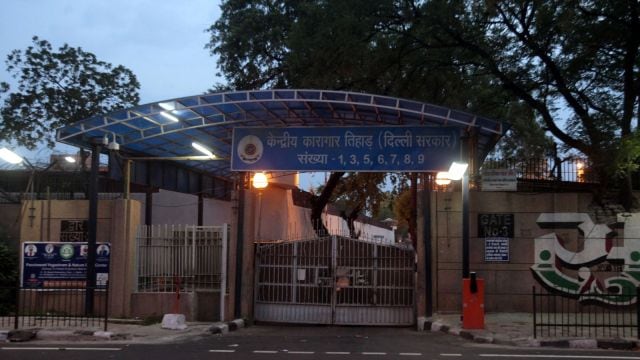DIY behind bars: Tihar Jail eyes in-house units for slippers, toothpaste, and more
Inmates who have never been employed inside the jail start as unskilled workers. After three months, they graduate to semi-skilled workers
 The prison administration is planning to set up in-house units to make these products (Archive)
The prison administration is planning to set up in-house units to make these products (Archive)From slippers, toothpaste and even underwear, all these items could soon be manufactured by Tihar Jail inmates for their daily use.
The prison administration is planning to set up in-house units to make these products and has decided to send a proposal to the competent authority to seek permission.
Sources said the proposal is among many being considered by the Tihar administration to cut the costs of running a prison system with 20,000 inmates.
According to a senior Tihar Jail official, if approved, a board will be constituted to administer the units. The board will comprise both Tihar officials and inmates.
The initial proposal will be sent to set up two units at first. “One will be for manufacturing slippers and the other for manufacturing registers. The registers unit would require inmates to dye, print, and bind pages… mostly for in-house use. Even the slippers that would be made will be for inmates,” a jail official said.
Currently, Tihar Jail has units producing baked sweets, furniture, spices and snacks, among other things.
Furniture made by Tihar inmates is used in Delhi government schools, while Tihar Bakery outlets sell baked items at various locations in Delhi. White shirts made by inmates employed as tailors are also bought by lawyers in Delhi.
Though the current units will cater to demand inside the jail and won’t be for making profits, a new system of management involving inmates will be constituted to deploy better business practices and streamline operations, a Tihar official said.
The primary objective, the official said, of making these units is to increase the employment rate among workers, while also cutting down significantly on the costs of procuring products of daily usage.
“We will propose manufacturing products that usually require mass procurement. Our calculations show that producing them inside Tihar Jail will cost us way less. But our primary objective is to keep the inmates engaged as much as possible,” the official said.
Inmates are employed in these units in various roles, labelled as unskilled, semi-skilled and skilled workers.
Inmates who have never been employed inside the jail start as unskilled workers. After three months, they graduate to semi-skilled workers. And after six months, they are deemed skilled workers.
“An unskilled worker earns an average of Rs 7,000 a month while a skilled worker earns up to Rs 10,000 per month. A minimum of 8% of all inmates are required to be employed in one kind of job or another. Our objective is to push it to 25% with these new avenues of employment,” a senior Tihar jail official said.
On the current capacity of Tihar, the official had said jails 1 to 9 are designed to house approximately 5,000 inmates, but these accommodate over 12,000 prisoners at present.
“Jails 10 to 16 are designed to house approximately 3,700 inmates, but currently accommodate over 3,900 inmates. Jail Number 4 in Tihar and 12 in Mandoli Jail are known as ‘Mulaija Jail’, which means first-time offenders. We have a large number of inmates in these two jails,” said a source.
The proposal for the units is being drafted under the supervision of the Superintendent (Factory) and the Superintendent (HQ) and will soon be sent to the competent authorities.







